OUM allegedly gave hundreds of students 0% marks. Here’s their explanation.
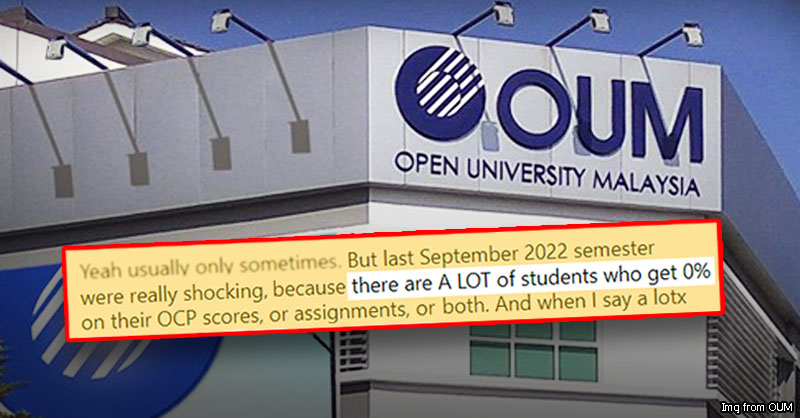
- 1.8KShares
- Facebook1.3K
- Twitter41
- LinkedIn46
- Email90
- WhatsApp288
In universities, there will always be people who fail their courses. If you’re gone to uni, seeing people fail their courses won’t set off any alarm bells in your head – there will always be those who don’t quite make the cut. A couple of weeks ago, though, someone DM-ed us on Facebook alleging that hundreds of people got 0%s at their uni… among other issues.
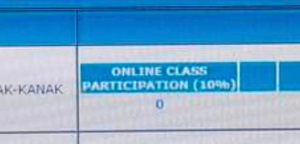
That someone was Makoto (not her real name), and she is a student at Open University Malaysia (OUM), a local private university that’s owned by a group of public universities. We contacted OUM to see what they said about Makoto’s claims, but first, let’s break down what her claims were.
Makoto said that students were getting 0% for no reason
Firstly, there’s the claim of students unfairly getting 0% on their assignments or exams. Here’s a screenshot from the WhatsApp conversation between us and Makoto:

It seems like quite a widespread issue as Makoto said there were “A LOT of students who got 0% on their Online Class Participation or assignment scores”, and they numbered in the hundreds. Taking a look at the Open University Malaysia Students Forum Facebook page, it does seem like there were other students who had the same issue:

When asked why she thought this happened, she said it could be down to either system or human error – she mentioned that the OUM student portal, myInspire, was “laggy” or “glitchy” at times.
Then, there’s her gripe about OUM not being clear on the hours that were needed for the students’ practical work. Practical work is sort of like an internship, and OUM requires students that don’t have the relevant work experience to complete a preset number of hours of practical work before they can graduate.
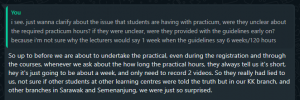
Makoto said that an OUM staff member had told her she only needed to do about a weeks’ worth of practical work and submit two videos as part of said practical work. She later learnt that 120 hours of practical work was needed, in contrast to that first bit of information. The registration process for the practical work was also problematic, as she claimed that registration deadlines were never really made clear to her. She’s apparently been told by an OUM employee to “agak-agak saja tu”. That has, apparently, caused her issues with getting time off from her employment to do practical work for her course.
As y’all can tell, Makoto made some serious claims about OUM’s supposed misgivings, and we couldn’t just publish an article without hearing the other side of the story, could we?
OUM said that students were getting caught by an “anti-cheating” software
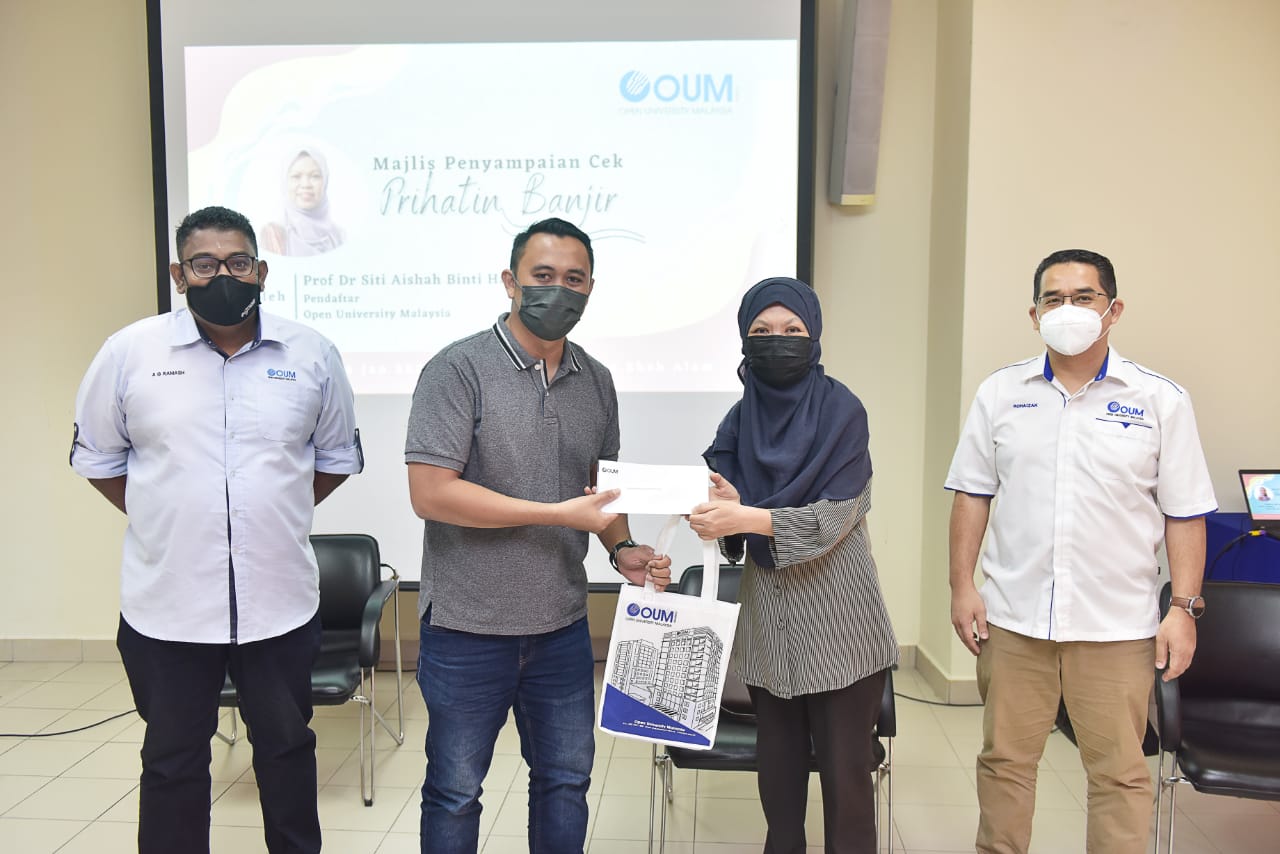
Yep, OUM’s General Manager, Professor Dr. Siti Aishah Hashim Ali (who’s also a lecturer at the uni, by the way), got on a video call with us, and addressed Makoto’s concerns one by one.
For starters, Dr. Siti said that OUM uses SimilarityCheck, a software that checks for similarities between students’ submissions, and if any students are caught with a similarity score of 70% or above, they get an automatic 0% for their submission. For example, if 300 students submit an essay for grading, and if 10 people are flagged by the SimilarityCheck software, they get straight up zeroes.
This is, according to Dr. Siti, to prevent students from copying each other’s work, so there seems to be a possibility of cheating going on among the students since they complete assignments and exams at home. Then again, if students feel like they’ve been unfairly graded, Dr. Siti says they can request for their submission to be re-graded manually for a fee of RM50.
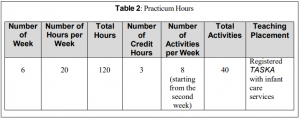
About the issue of the hours needed for practical work, Dr. Siti emphasized that OUM takes multiple measures to explain what is needed from the students. Students are given handbooks upon registering for their courses, and OUM organizes a briefing session within the first three weeks of a semester to explain how things at the uni work, including explanations for practicals. Additionally, students would be reminded to register for their practical work via WhatsApp and the myInspire platform.
In Makoto’s case, Dr. Siti mentioned that from the university’s correspondence with Makoto, there might have been a miscommunication of some sort. You see, when Makoto contacted OUM, she was told she needed a weeks’ worth of practical work and submit two videos. That was actually an assignment that needed to be done as part of her course and doesn’t actually cover the 120 hours’ worth of practical work required.
Before we ended our video call with her, Dr. Siti said that Makoto is welcome to reach out OUM to sort out any issues she’s currently facing with her course.
Maybe it’s really a big case of miscommunication between the students and OUM
Honestly, it’s a good thing that students are allowed to air their grievances, whether it’s on that FB page or via OUM’s eCRM system (basically an internal messaging thing), and it’s nice to see that OUM responded to us. And from our chat with Dr. Siti, OUM seems to be very open to receiving feedback from their students, so maybe the next step is for them to talk to each other.
- 1.8KShares
- Facebook1.3K
- Twitter41
- LinkedIn46
- Email90
- WhatsApp288




